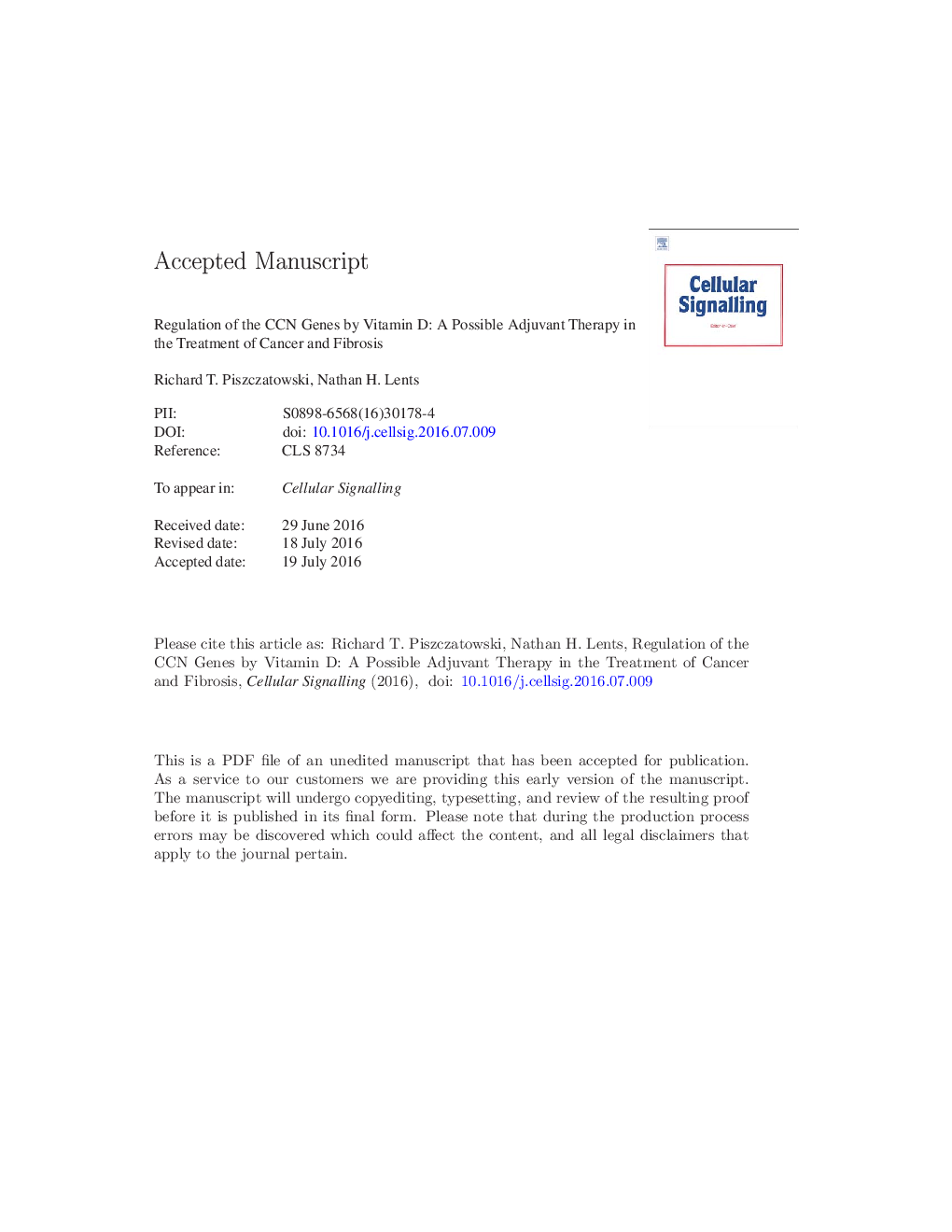| Article ID | Journal | Published Year | Pages | File Type |
|---|---|---|---|---|
| 10814938 | Cellular Signalling | 2016 | 31 Pages |
Abstract
The CCN family is composed of six cysteine-rich, modular, and conserved proteins whose functions span a variety of tissues and include cell proliferation, adhesion, angiogenesis, and wound healing. Roles for the CCN proteins throughout the entire body including the skin, kidney, brain, blood vessels, hematopoietic compartment and others, are continuously being elucidated. Likewise, an understanding of the regulation of this important gene family is constantly becoming clearer, through identification of transcription factors that directly activate, repress, or respond to upstream cell signaling pathways, as well as other forms of gene expression control. Vitamin D (1,25-dihydroxyvitamin D3 or calcitriol), a vitamin essential for numerous biological processes, acts as a potent gene expression modulator. The regulation of the CCN gene family members by calcitriol has been described in many contexts. Here, we provide a concise and thorough overview of what is known about calcitriol and its regulation of the CCN genes, and argue that its regulation is of physiological importance in a wide breadth of tissues in which CCN genes function. In addition, we highlight the effects of vitamin D on CCN gene expression in the setting of two common pathologic conditions, fibrosis and cancer, and propose that the therapeutic effects of vitamin D3 described in these disease states may in part be attributable to CCN gene modulation. As vitamin D is perfectly safe in a wide range of doses and already showing promise as an adjuvant therapeutic agent, a deeper understanding of its control of CCN gene expression may have profound implications in clinical management of disease.
Related Topics
Life Sciences
Biochemistry, Genetics and Molecular Biology
Biochemistry
Authors
Richard T. Piszczatowski, Nathan H. Lents,
